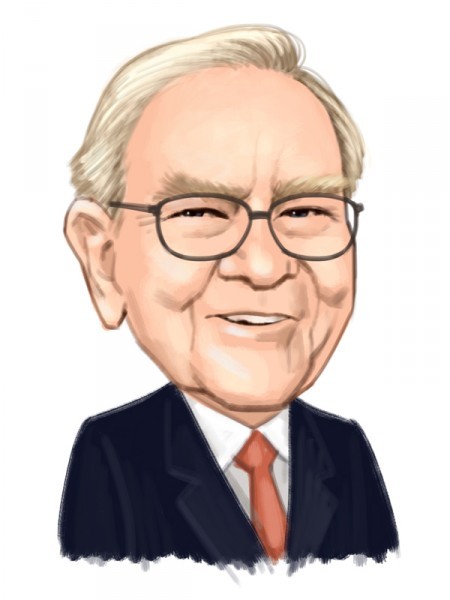Analyzing Warren Buffett s 2013 Famous Shareholder Letter (BRK B)
Post on: 13 Апрель, 2015 No Comment

Reading the chairman of Berkshire Hathaway’s letters has been one of the best sources of investment education for value investors around the world. Warren Buffett has expressed his investment philosophies time and again through these letters every year. Here we review the key takeaways from Berkshire Hathaway’s 2013 chairman’s letter.
Investment vs. Speculation
Buffett draws a clear boundary between investors and speculators. According to him, if you focus on the future productivity of the asset and are able to contemplate its future earning with a reasonable degree of accuracy, then you are investing; but if you instead focus on prospective price change you are speculating. He says, “Games are won by players who focus on the playing field- not by those whose eyes are glued to the scoreboard.”
Owner’s Perspective
Warren Buffett thinks from an owner’s perspective whenever he looks at a business. His evaluation is the same whether he is evaluating a small portion of a large business or the business as a whole.
Focus On Growth In Book Value
Mr. Buffett has always emphasized the importance of ROE. He uses growth in book value for measuring the business performance of Berkshire Hathaway. He argues growth in book value is a reasonable proxy for growth in intrinsic value as growth in book value serves as a good barometer over a reasonably long period for Berkshire Hathaway. Berkshire last paid dividends in 1967 and has many fractional ownership of different companies, so the earnings that flow through to the income statement vary widely. Buffett talks about being committed to increase the intrinsic value of Berkshire Hathaway by: 1) constantly improving the earning power of subsidiaries. 2) Further increasing their earnings by acquisition of businesses that have synergy with existing subsidiaries. 3) benefiting from growth of investees. 4) repurchase of Berkshire’s shares at meaningful discount to intrinsic value and 5) Occasional large acquisitions.
Share Buy-backs
According to Mr.Buffett, Intrinsic value is the present value equivalent of excess returns an asset is expected to earn in the future. Mr. Buffett has said that after the allocation of investments with higher expected return, he would buy back shares of Berkshire Hathaway if they trade below 120% of their book value. Mr. Buffett chose 120% of book value because he is a student of Benjamin Graham’s lesson in value investing: “Margin of Safety.
Inaction Over Action
Mr. Buffett does not intend to ever sell the recently acquired stake in Heinz. He says it is far more beneficial to stay with a company having excellent business over the long term than to keep buying and selling stocks of different companies. He argues long term investments reduce the number of decisions one makes, hence it reduces your chances of making errors and helps defer taxes over the long term.
Delegation Of Responsibility
He delegates responsibility to trustworthy people. He puts the right man in the right job and gets to enjoy his success passively. He believes in giving freedom to managers and has often said “You do not tell someone who averages 40, how to bat.
Preference For Businesses With Moats
He has preferred companies since the early 1970’s that have some sort of durable competitive advantage and terrific underlying economics. Here he explains the competitive advantage of NV Energy as the 88% market share that it commands, the advantage of GEICO for having a low cost structure and a selective insurance writing policy, and Coca-Cola for having a strong brand. These advantages are the functional equivalent of a moat that guards the company’s profitability. The underlying economics relate to the nature of the business and the environment in which the company operates, like pricing power, low capital needs, low debt, selling essential products that have high recall, low bargaining power of customers and suppliers,and a large untapped market.
Betting Heavily When Odds Are In His favor
Mr. Buffett has invested significant sums of money in energy (renewable) and transportation. He exhibits confidence in their long term prospects as society will go on forever and it would be in the self-interest of governments to treat capital providers in the manner that will ensure continued funds to essential projects. This shows his preference of common sense and betting big on events that are virtually obvious.
Quality of Reinvestment
Berkshire Hathaway’s (BRK.B ) subsidiaries spent $11 billion in 2013, out of which 89% was spent on fixed assets. The lesson here is whenever a company is reinvesting, one should look at the distribution of reinvestment between fixed assets and working capital. It is usually a good signal if a company invests majorly in fixed assets as it is an indication of preparation for future growth.
Look Through Earnings
He has promoted a concept called “look through earnings”, where he urges investors not to be myopic and only focus on dividends, but also the portion of earnings that the company retains. Besides, if the company is able to reinvest retained earnings at a higher rate, every dollar retained is actually worth more.
Float Is As Important As Moat, If Not More

He explains the concept of float in relation to insurance companies. Insurance companies are in the business of collecting money now, and paying later. That money will eventually go to others, but the insurance company gets to invest that money for its own benefit now. Even though individual policy holders come and go, the float (other people’s money) remains fairly stable in relation to premium volume. The float can even increase with intelligent underwriting, which is the focus of the managers of insurance subsidiaries. Float is treated as a liability as per accounting rules, but its true economic nature is of an asset. This is a huge benefit, if one knows how to invest capital effectively.
Open Admiration And Candidness
He openly gives credit to all his managers and attributes the success of the company to them. He is candid to the extent that he admits the fact that other fund managers performed better than him in 2013.
What Makes A Good Insurance Operation
He also gives away the do’s to have a sound insurance operation: 1) understand all exposures that might cause a policy to incur losses 2) Conservatively, access the likelihood of any exposure actually causing a loss and the probable cost if it does. 3) set a premium that, on average, will deliver a profit after both prospective loss and operating expenses are covered. 4) Be willing to walk away if the appropriate premium can’t be obtained.
Depreciation: A Very Real Cost
He warns investors against the use of the fancy accounting term EBITDA (Earnings before interest tax depreciation and amortization). He says, deprecation is a major cost and should not be ignored while looking at the earnings of a company. Depreciation gives a rough idea of how much on average the company has to spend periodically to operate at the same level.
Circle Of Competence
Mr. Buffett has always told investors to stay within their circle of competence. He believes and promotes the idea of keeping things simple and he does not invest when he is unable to understand the business of a particular company. In his letters, he talks about a concept called circle of competence by which he means to stick to only what you understand. He says, “it’s vital, however, that we recognize the perimeter of our circle of competence and stay well inside of it”.
The Bottom Line
Warren Buffett has written to shareholders over the years to offer insight to his extensive knowledge. It’s worth spending the time to read and analyze Berkshire Hathaway’s letters and utilize each letter as a unique opportunity to learn from history’s greatest investor.














